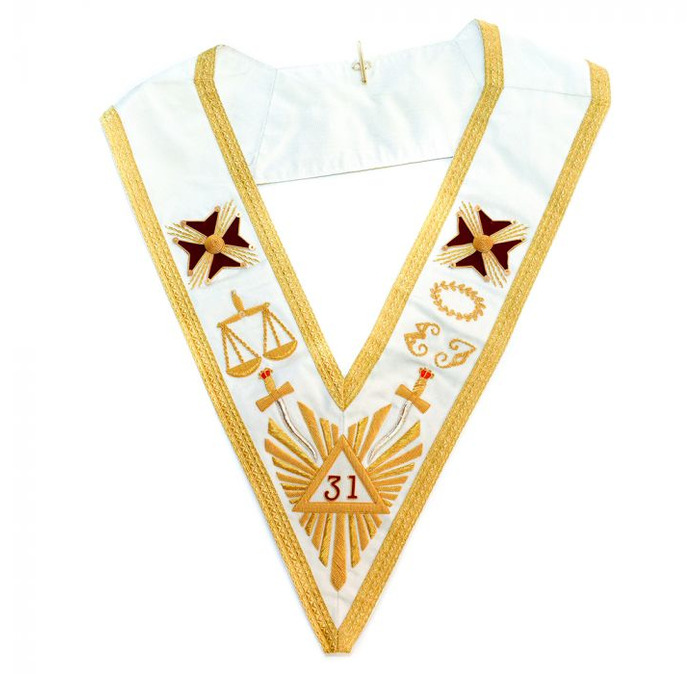Rose Croix 31st. Degree Collar
The collar of the 31st Degree of the Rose Croix, also known as the Inspector Inquisitor Commander, holds several important symbolic elements. This degree, which is part of the Ancient and Accepted Scottish Rite of Freemasonry, focusses on themes of justice, equity, and self-examination. The regalia, including the collar, reflects these lessons.
Key symbols on the collar and within the degree's regalia include:
The Number "31": This number is prominently displayed on the collar, within a triangle. It signifies the specific degree and its associated lessons.
A Triangle: The triangle is an important Masonic symbol for the divine and in Rose Croix the Trinity. In this context, it also represents the unity of justice, equity, and truth.
The Teutonic Cross: The Teutonic Cross, depicted in black and silver, is a historical and chivalric symbol used in the regalia of this degree.
Scales and a Sword: These are powerful symbols of justice. The scales represent balance and the impartial weighing of evidence, while the sword symbolises the power to enforce justice and equity. The lessons of the degree emphasise that a Mason should judge himself as he would others, considering both actions and motives.
A Double-Headed Eagle: This is a significant symbol in the Scottish Rite, representing strength, vision, and the pursuit of divine truth. It is often part of the jewels and regalia of the higher degrees, including the 31st.
Colours: The regalia for the 31st Degree often features a combination of colours, with white and gold being prominent. White is a symbol of purity, while gold represents truth and divinity. A hint of red may also be present, symbolising passion, sacrifice, or a connection to the Rose Croix's core symbolism.
The symbolism of the 31st Degree and its collar is a reminder for the Mason to uphold the principles of justice and equity not just in their external dealings, but through constant and prayerful self-examination. It is a degree that moves from the symbolic lessons of the earlier degrees to a focus on the administrative and judicial aspects of the Craft



 Click on the image to enlarge
Click on the image to enlarge